Table of Contents
About
After 19 years of nursing primarily in the rural and remote setting, Adjunct Professor Danielle Causer shares with The Nurse Break her passion for rural and remote nursing. With a career spanning clinical nursing, high-level executive and board positions she brings a wealth of perspective. She is also a Director for the CRANAplus board since October 2022. In her spare time, she formed a rural and remote focussed podcast titled “A Nurse Out Where” which she says she is most proud of.
How did you get into rural and remote nursing and what has kept you in it for so long?
I am a country girl at heart being rural and remote is part of my lifestyle. Professionally I love the autonomy, the challenge and the opportunities. Personally, it’s the people. The people you work with and the people in the community.
What traits does rural and remote nursing require?
Someone adaptable, tolerant and adventurous. Lots of people say you need critical care and emergency skills; yes you do have to have these but you also need to realise that this will only be a fraction of your day. Plus, there are so many support systems in place including IT support via telephone and video conference that there is ALWAYS someone to help guide you when you need it.
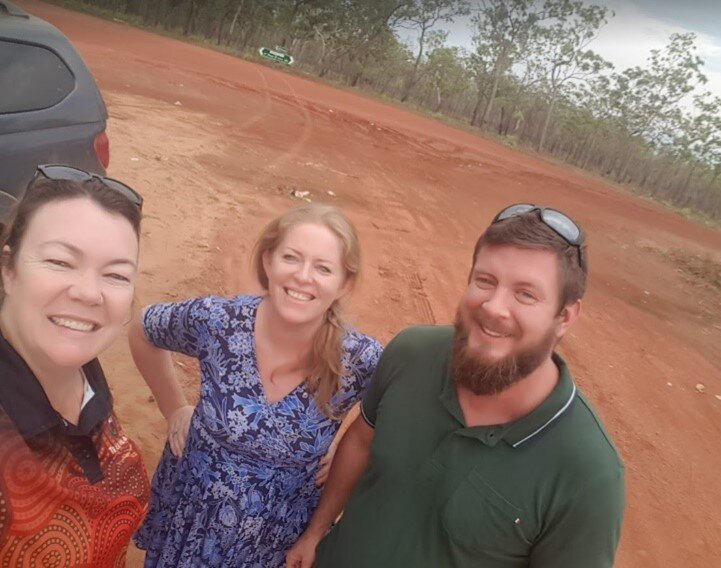
Tell us about some funny or memorable moments you’ve had during your R&R career
I remember being almost due to have our 2nd child and I was at work in the Emergency Department when my father-in-law came in with chest pain and respiratory distress. We didn’t have the luxury of declaring a conflict and getting another staff member in to care for him. It was me. That was a tough day. We both survived, but I will never forget it.
As a grad, the NUM for our rural facility pleaded during the morning handover for anyone to do their presentation on infection control for mandatory training. Typical me I said yes and thought I’d figure it out later. I said to him, “if you tell me what to say I’ll do it”. This was back in the days of an overhead projector. He gave me the slides and said, “you’ll be right”. As I entered the room it will full and even included some executives. I was SO nervous! I was asked to explain the aseptic technique. I’d recently completed my female catheterisation competency, so it was fresh in my mind. I thought I was so clever explaining this step-by-step detailed process and discovered this included the kitchen staff who were grossed out and not impressed. Lesson learned – know your audience!
Working as a school-based youth health nurse, I was asked to present to grade 9 on sexually transmitted infections. Knowing this would be initially uncomfortable and attempting to get the giggles out I wrote PENIS in large capital letters on the whiteboard. I asked the students to tell me all the names that they use for this word. Each student that told me a name or phrase got a minty. Once they knew they’d get lollies and not detention there were LOTS of interesting words and phrases used. Eventually, they ran of out words before I ran out of lollies.
Then as I went on with the class, I went to wipe it off the whiteboard only to discover it was a permanent marker and not white board marker! This was met with fits of laughter. One student taught me that if you trace over the word with whiteboard marker you can then rub it off. Great! I gave him this task so I could get on with the lesson. Not much later the principal wandered past to see me sitting on the desk with great imagery and a student tracing the word PENIS in very large font on the whiteboard. Lesson learned – check the marker first.
As the nurse educator, I worked with the clinical director of training and the Midwifery Unit Manager to run some simulated training for the midwives. I “had” 5 babies that day. None of which went smoothly I might add. I had a breach, a PPH, and a delivery in the carpark which resulted in an MI. It was exhausting.
My most fond memories are outside of work. It’s the Christmas party at Musgrave Station on Cape York Peninsula so nobody had phone service which meant nobody was on call; it’s the CRANAplus conferences; it’s meeting new friends and connecting with colleagues at the ACN or AQNML conference; it’s the BINGO night with the grads in their first week of orientation; it’s doing PALS simulations with your peers; it’s going into the community to help orientate new staff; it’s the community engagement sessions on country; it’s the late-night zoom meetings to meet up with you international colleagues and discuss global issues and how we can work together for local solutions.
I truly am blessed, and nursing has been such a fabulous career for me.
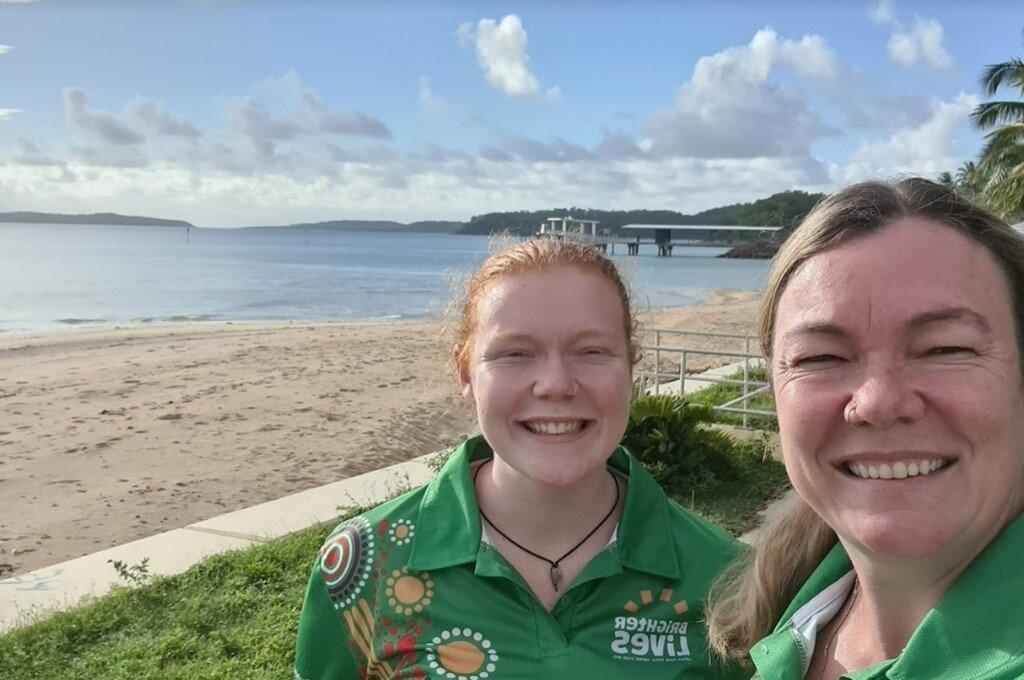
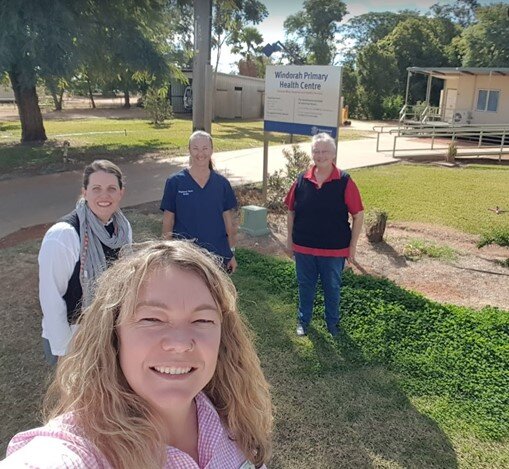
Misconceptions about Rural and Remote Nursing?
There is an old saying that rural and remote nurses are either mercenary, missionary or misfits.
I think rural and remote nursing and midwifery is a superpower that needs to be celebrated. Not all rural and remote nursing is acute emergency response. There are maternity units, theatre, child health, community health, cancer care, telehealth, aged care and primary health care prospects available, you just have to seek and you will find your niche.
What inspired you to start your podcast?
I was in several meetings discussing health policy and, I kept thinking to myself “where is the voice of nursing? … where are the rural and remote nursing stories here”. I was doing some research about rural and remote nursing and midwifery and thought ‘people’ don’t know the lengths nurses and midwives go to in rural and remote areas. We need to capture these stories and share them. What is an ordinary day for a rural and remote nurse is undoubtedly exceptional.
What have you learnt through the process of podcasting and interviewing?
I’ve learned a lot about the art of public speaking! I’ve been told I have a ‘very Australian voice’ which means I can sound pretty bogan ???? I have a loud laugh – I figure if you’re going to laugh you should enjoy it. Mostly I’ve reaffirmed for myself that I truly love rural and remote nursing.
I never imagined that within the first 6 months of launching my podcast, I would be ranked in the top 50 podcasts in Australia!
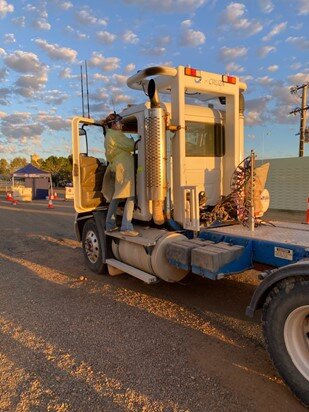
Which experiences have shaped your views?
We’ve moved a lot and so I’ve done a lot of different roles throughout my career. I think the opportunity just to say yes – and work the rest out later has shaped my career. I’ve had some incredible mentors and support professionally and personally and some have no idea that they are such an inspiration for me. I believe that setting a direction for the future delivery of healthcare needs to be person-centred to find a balance between the business of healthcare and keeping the patient in focus.
One thing you wish you would have known before you started your career?
I think we get lost in the hierarchy of nursing. We are all people regardless of our role or title. I wish I had known it was ok to say I don’t know and not feel guilty or silly for asking. I wish we had services like TEMSU when I was a grad and starting in rural and remote. They are a fabulous resource and there for ALL the questions.
What red tape or barriers to improvement do you want to see reduced/removed?
The biggest challenge for rural and remote nursing is the transient nature of the workforce. We are restricted when you relocate to provide all the mountain of evidence of registration, training and professional development each time. I recently experienced this going on a short secondment within Queensland Health but outside of my HHS. I had to find my original certified copy of my bachelor’s degree certificate despite being a current employee and registered with AHPRA. A digital passport I am told is currently under development and I am very excited to see this progress.
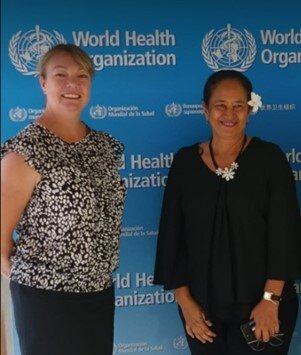
What advice would you give to someone considering this field?
Give it a go! Throw a dart, call the hospital and go for a month. Be open to the opportunity to stay or move to another location if that one doesn’t fit. Every rural and remote community is same/same but different. You’ll find your place, don’t be put off if the first experience isn’t “living the dream”. There’s an old saying that says: If you’ve been to one rural and remote community, you’ve been to one rural and remote community. This is so true.
What’s one of the greatest lessons you’ve learnt in your journey so far?
Someone is always watching. Now, you might think this is a bad thing; but when the chips are down a rural and remote community will surround you and support you until you are ok.
What does a Nursing Director do?
I’ve been both a Director of Nursing and now an Executive Director of Nursing. What do they actually do? Well, it really depends on the position. A facility Director of Nursing is different to a District Director of Nursing or a unit Nursing Director. Nursing is one of those funny careers where there is a web of career pathways.
In my current role as Executive Director of Nursing and Midwifery Services, it is my role to be across all professional standards of practice for both Nursing and Midwifery. I have a regional responsibility to strategically develop the nursing workforce/service to optimise patient and staff outcomes. This for me means my personal and professional integrity including my ability to act as a positive role model is of upmost importance.
What is CRANAPlus and why should nurses know about it?
CRANAplus is the peak body for all things rural and remote healthcare. They provide education as well as professional support from like-minded people who truly understand what it is like for the remote and isolated workforce. It is a fantastic network, and its courses and conferences are highly sought after and sell out fast.
Your top 5 tips for a diverse and interesting career and lasting in the profession for so long?
- Say yes – say yes to the opportunities afforded to you.
- Be confident that it will always work out in the end.
- Listen, study and reflect to truly understand.
- Life is too short to be unhappy. You won’t always be ecstatic about your job, but if you love where
you are than the work is easy. - Whatever you do and whatever you say – do it with kindness in your heart.
Who are the 3 people who have been most influential to you and why?
- Shelley Nowlan – Chief Nurse and Midwifery Officer Queensland. Shelley has had a significant
impact on my career and leadership. She is humble and always approachable. She too is a
passionate advocate for rural and remote nursing and midwifery. - My family. My husband and kids are the best pit crew anyone could ask for. They are adaptable,
resilient, and kind. They have always supported me and made such sacrifices over the years. I am
truly grateful and forever in debt to them. - All the rural and remote nurses and midwives from over the years. My limited research on the
pioneers of rural and remote nursing and midwifery have uncovered some incredible tales and
extraordinary men and women of the bush. That is the purpose of the podcast … learning and
discovering more from A Nurse Out Where… All of you inspire me to dream more, do more,
learn more and be more.
Please provide some key resources and links you think R&R nurses or aspiring nurses need to check out before going remote
Rural and Remote Nursing Podcast – A Nurse Out Where
CRANAplus: The Peak Professional Body for Remote Health
Primary Clinical Care Manual (PCCM) | Queensland Health
CARPA Standard Treatment Manual 7th Edition (ecu.edu.au)
Australian College of Nursing (acn.edu.au)
AQNML | Assoc. of Queensland Nursing & Midwifery Leaders | Home
A Nurse Out Where | Podcast on Spotify or Apple
International Council of Nurses (ICN) | ICN – International Council of Nurses

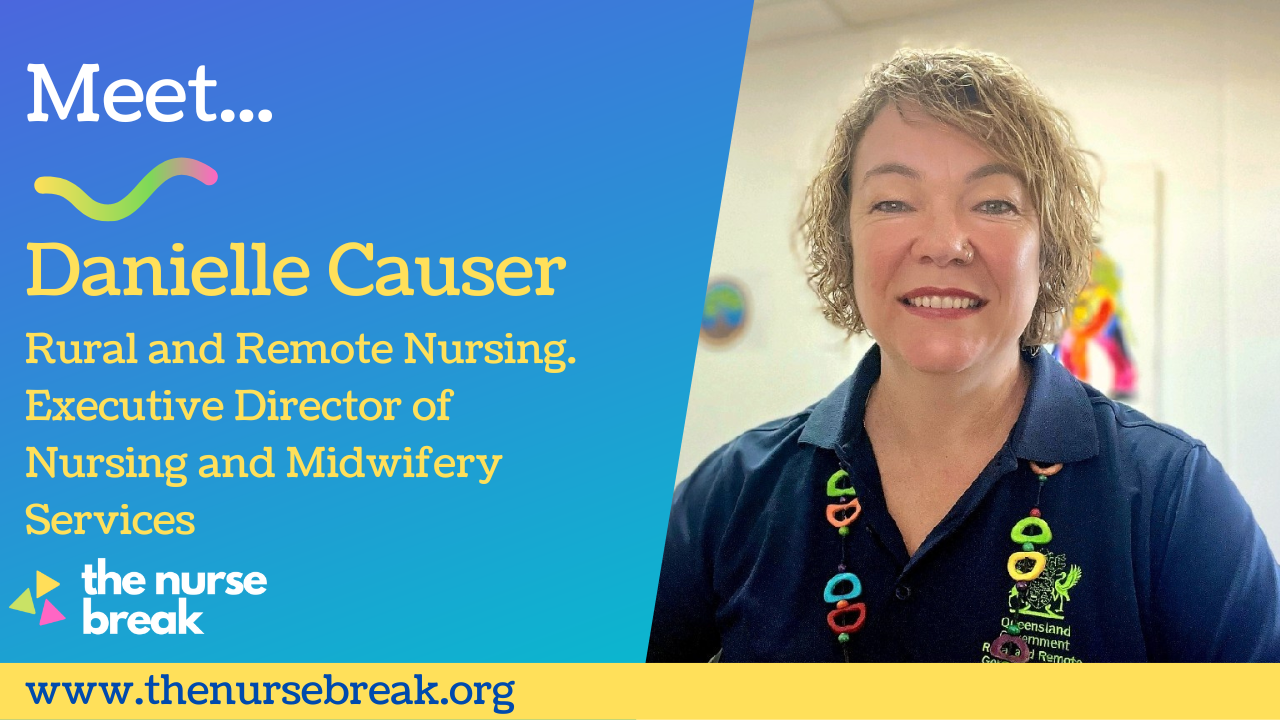




You must be logged in to post a comment.